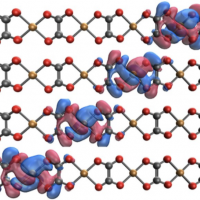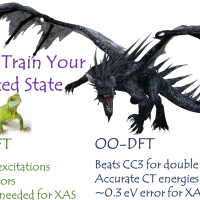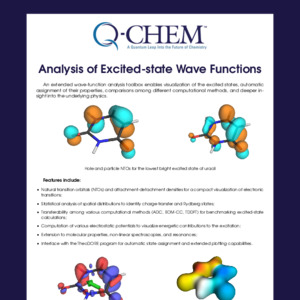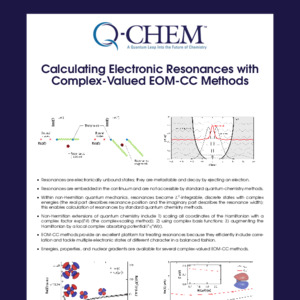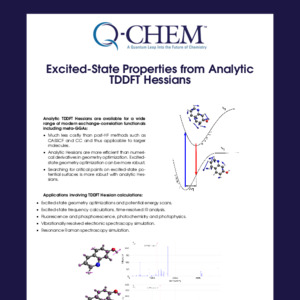Q-Chem Webinar 49
Ab-Initio Frenkel Davydov Exciton Model: A tool to investigate collective excitations in extended systems
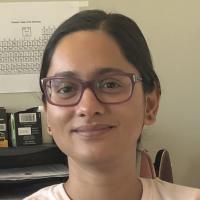
Bushra Alam received her BSc. in Chemistry from Calcutta University in 2014, and MSc. in chemistry from IIT Madras in 2016. Currently pursuing a Ph.D. in Prof. Herbert’s group at Ohio State University, she is studying excited state processes in extended systems.
Abstract
The Ab-Initio Frenkel Davydov Exciton Model (AIFDEM) is a fragment-based, first-principles exciton model which is helpful for studying collective excitations in extended systems such as aggregates and molecular crystals. In this model, excitations on user-defined fragments form a basis, whose superpositions give rise to the exciton wave functions. The nature of these fragment states is key to the description of the exciton wave function, and can be customized to include locally excited, charge transfer, and also coupled triplet states (the latter of these is inaccessible to single-excitation methods, such as TDDFT or CIS). In this way, the AIFDEM can be tailored to study chemical processes that involve such species, such as singlet fission. In this webinar, we will discuss how to set up such calculations and share guidelines on how one may further categorize the excited states obtained. The parallelizable nature of this model also ensures that it can be used for large systems. This can help in the investigation of size-dependent trends, as well as to model bulk environment effects. Finally, we will also demonstrate how one may run AIFDEM calculations in a way that can avert wall time limitations on computing resources.

Questions or suggestions?
We hope you enjoyed this webinar! If you have any questions or feedback for the speaker or the Q-Chem team on the topics covered in this webinar, please use this forum thread:https://talk.q-chem.com/t/webinar-49-by-bushra-alam-ab-initio-frenkel-davydov-exciton-model-a-tool-to-investigate-collective-excitations-in-the-extended-systems/271.

